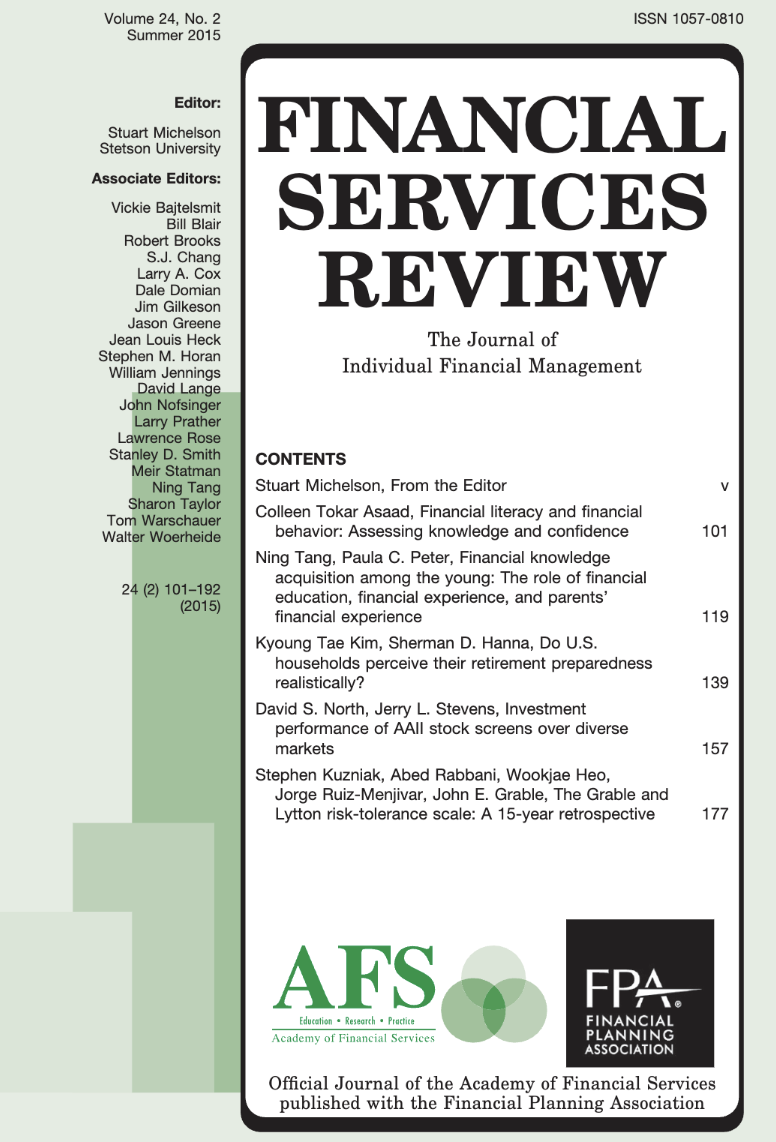Do U.S. households perceive their retirement preparedness realistically?
DOI:
https://doi.org/10.61190/fsr.v24i2.3238Keywords:
Retirement assessment, Retirement adequacy, Cognitive ability, Survey of Consumer Finances (SCF), Financial educationAbstract
This study examines the divergence between objective and subjective assessment of retirement adequacy, analyzing U.S. households with a full-time worker age 35 to 60 in the 2010 Survey of Consumer Finances. Of those households, 58% have objective inadequacy, and 54% have subjective inadequacy, but only 52% have objective/subjective consistency. Our focus is on households with objective inadequacy, and what factors were related to being an optimist despite having objective retirement inadequacy. A logistic regression shows that households with defined benefit plans and with defined contribution plans are less realistic than those without plans, and as age increases, realism decreases.
Downloads
Published
How to Cite
Issue
Section
License
Copyright (c) 2015 Academy of Financial Services

This work is licensed under a Creative Commons Attribution-NonCommercial 4.0 International License.
Author(s) retain copyright and grant the Journal right of first publication with the work simultaneously licensed under a Creative Commons Attribution-NonCommercial 4.0 International License that allows to share the work with an acknowledgment of the work's authorship and initial publication in this Journal.
This license allows the author to remix, tweak, and build upon the original work non-commercially. The new work(s) must be non-commercial and acknowledge the original work.


